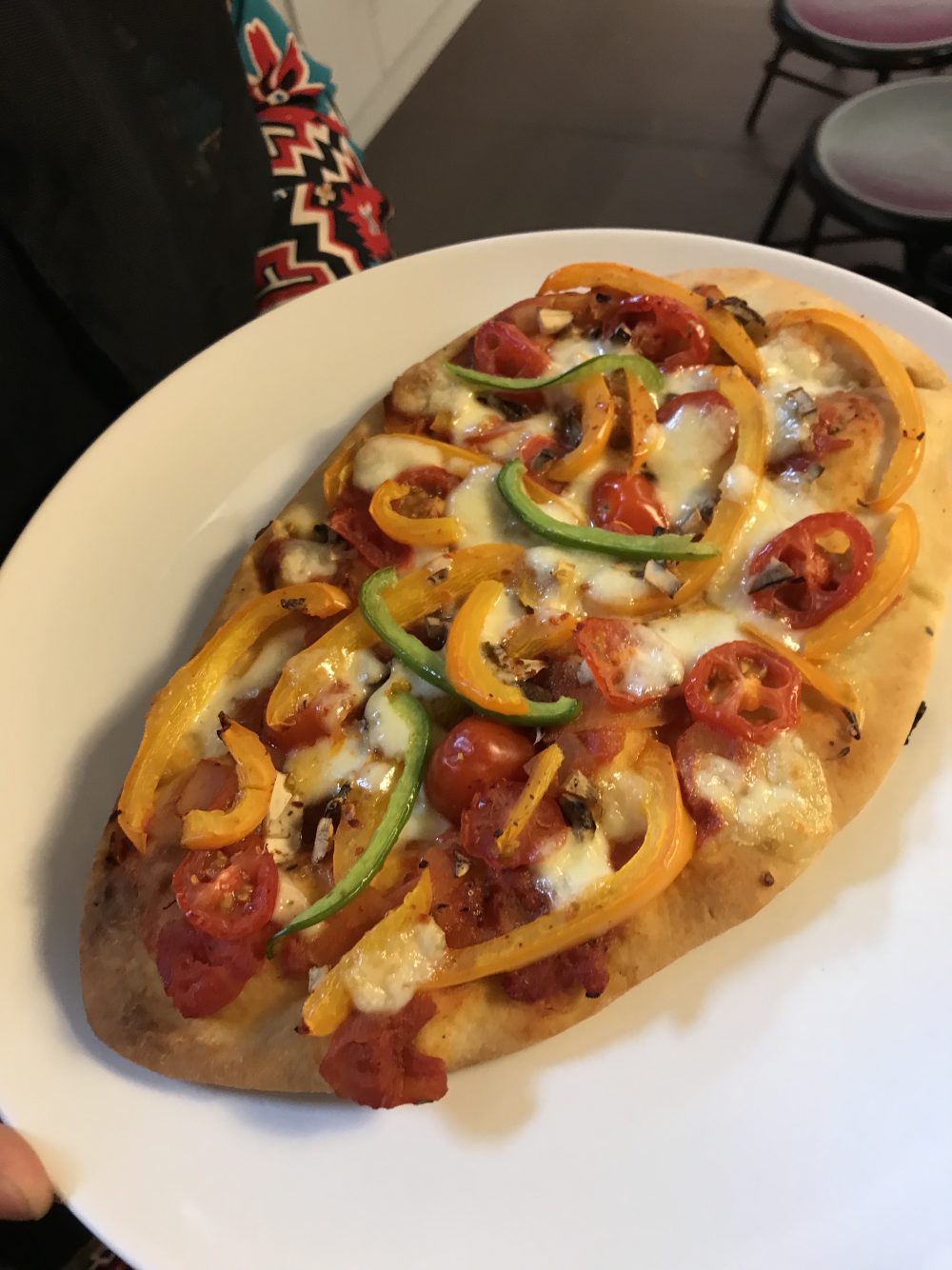You're on the Young People Site
Dedicated to self-harm recovery, insight and support.
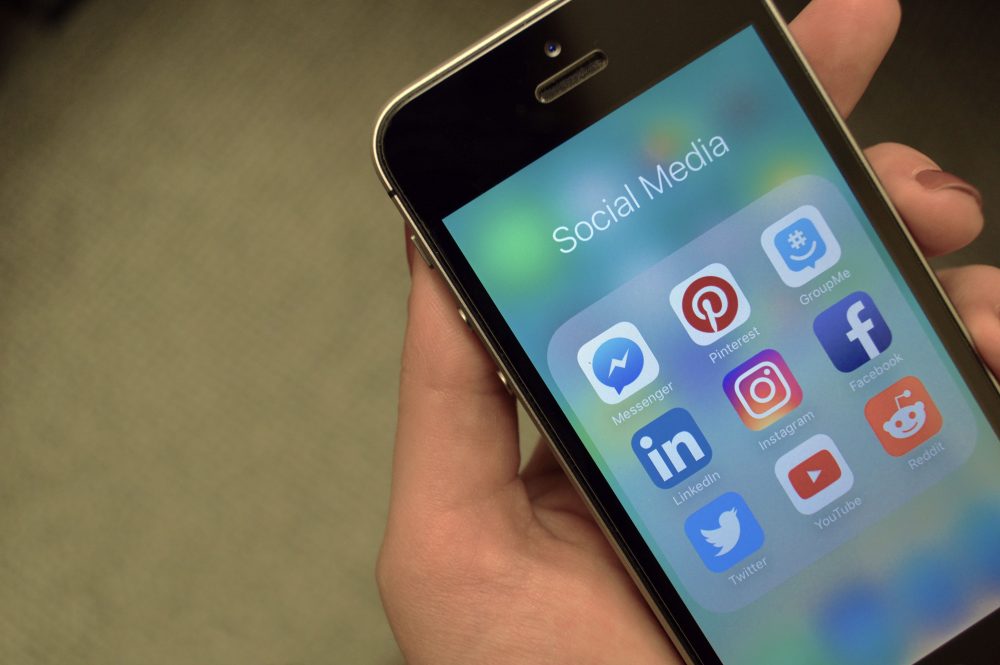
Jess Whittaker, a member of the SelfharmUK team, shares her thoughts about how you can stay smart on Instagram.
Today, as I was driving in to work, something I heard on the radio caught my attention and immediately made me turn up the volume. It was a report claiming that Instagram is one of the worst social media platforms when it comes to the impact on young people’s metal health.
In the UK, a survey of 1,479 people aged 14-24 were asked to rate which social media platform they felt had the most negative effect on them. They then scored each platform individually around issues like anxiety, depression, loneliness, bullying and body image.
Once the report had finished, I turned the radio off and thought for a moment. Like everything, Instagram has positive and negative sides to it, depending on what you use it for.
For example, lets’ say you’re someone who’s suffered from a mental health issue, such as self-harm or bulimia and are now in full recovery (well done you!). You might choose to use Instagram to share your story by posting inspiring quotes and photos that show the positive things in your life. There is no denying that Instagram is a really great way to visually spread positive messages quickly.
But what if you’re someone who spends hours on Instagram late at night, alone in your room, constantly comparing yourself to other people? You’ve stopped posting selfies because you’re so convinced that your photos look awful compared to your friends, that all you really use Instagram for now is to re-inforce your negative thoughts about yourself.
If you can relate to the above, don’t be embarrassed or afraid to speak up because… whoever you are and however you choose to use it, we have some great tips about how you can protect your mental health on Instagram:
- Limit the time you spend on there: like all social medias, Instagram can get kind of addictive. Whilst you might feel like time stands still when you’re on there, it doesn’t. You can literally Insta-away your whole weekend and before you know it, it’s Monday already and your back at School or College again! Just think of all that time wasted and all the fun things you could of been doing instead!? Next time you’re on there, set an alarm to ensure you don’t stay on there for too long, or only look during a short car ride somewhere. As soon as you are where you need to be, close your Instagram app and engage with your surroundings.
- Stop comparing yourself to others: this is a tough one. It’s easy for people to tell you not to compare yourself to others, but the truth is, it’s something that everyone has to deal with throughout their lives every now and again. It becomes a problem, however, when it starts to affect your self-esteem, so how you feel about yourself, and you stop doing the things you used to enjoy because you can’t see the point anymore. If you think Instagram (or any social media for that matter) is starting to make you feel that way, tell a family member or trusted adult. Speaking up isn’t easy, but talking about how you feel is the first step to getting help.
- Think that if it looks too good to be true - it probably is: chances are you already know this, but lots of photos we see on social media have been digitally manipulated. This means that they have been edited on a computer using software like Photoshop to make them look better than they are. Many of the Fashion brands or Celebrities you follow will use this technique, but it’s something we constantly have to remind ourselves of as they can become the norm and start to look real. Next time you see a photo of someone on Instagram, who looks too perfect to be real, have a laugh about the fact that nine times out of ten, they probably aren’t!
- Know where you can go for support if something you’ve seen is bothering you: if you see something on Instagram (or any other social media platform) that upsets you for any reason - report it using the options available, then tell a family member or trusted adult immediately. If you don’t want to talk about it with someone you know, you can call The Samaritans or Childline at any time.
- Don’t go on Instagram alone: at the end of the day, if you’re someone that has always struggled with how social media makes you feel, schedule times to login with your friends after School or College. This way you can instantly discuss anything that you have seen that is upsetting you and find out what your friends think. Again, if you’re still unsure, you can always talk to a family member or trusted adult.

This article was written by Sophie, a previous Graduate Volunteer with Youthscape, to celebrate World Music Day.
I am a massive lover of music; I’m constantly listening to it. I’ve actually got my headphones in now as I write this!
Music is powerful. It can be so influential, and can be used as a way to express feelings, share a particular message, tell a story, and bring people together. There’s always something for everyone’s taste. You can study music, create it, or simply just listen and appreciate it. There is so much I love about music, where do I even start?
I’ve grown up in a musical family. My dad led the music at Church and was always playing his guitar and singing around the house. Whenever we would see his side of the family, it would always end up in a good ol’ sing song, and it still does! My brother is also very musical and I’d say I am too, though not to the same extent – my guitar playing skills are a little rusty! However, as I said, I’m always listening to music, and it has certainly helped me through life.
Music is everywhere we go; most shops we go into will always have music playing in the background, and I’ve even been in some shops that have a DJ! I also particularly like the pianos at St Pancras train station, free for anyone to play. It amazes me how much talent there is out there, and being able to hear a performance live is always so great! I love when you can literally feel the music, the bass in your chest, those songs that give you goosebumps, music that really resonates with you.
I love that music is for any and every mood, from when you need a good cry, to when you’re absolutely pumped and feel on top of the world! Music would help me through times where I felt alone and it would sometimes express my emotions – you know, when there’s a song that completely describes how you’re feeling or what you’re going through? Or when a song puts into words what you struggle to? Music helps calm my anxiety and has distracted me when I need a break from what’s going on around me – headphones in, world out! Music can put me in an amazing mood, it can lift me if I’m feeling a bit down, it can bring back great memories and can make me want to sing and dance around wherever I am (and I will do so where appropriate!)
Music has got me through many hours of work, revision and essays. I know a lot of people who need silence to work, but music motivates me and helps me concentrate (most of the time). I remember my friend once telling me how she got around music being a distraction - she had started listening to songs in a different language so it meant she couldn’t get distracted by singing along to it!
I absolutely love how music brings people together, through the love of a song, band/artist, cause - we recently saw how so many people came together for the benefit concert, to help raise funds for the victims of the Manchester attack and their families. As well as people actually being at the concert, so many people tuned in to watch from home too. Music can connect people across cities, countries and continents, and in a way, it’s like a language we all share.
I just couldn’t imagine a world without music, could you? There are so many reasons to celebrate it today!
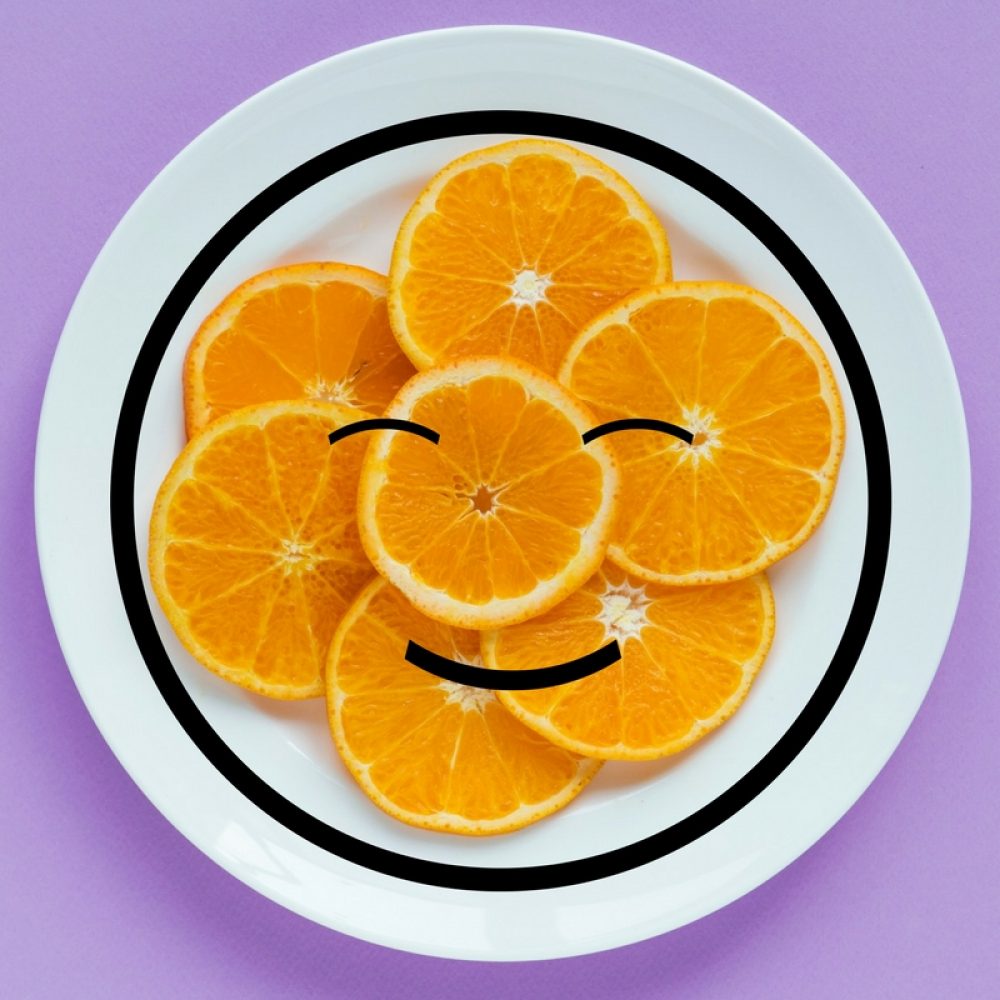
The blog post below was written by Sophie, a Graduate Volunteer at Youthscape working alongside the SelfharmUK team.
Have you ever noticed that you’re a little happier on sunny days? When you get enough sunshine, your body produces vitamin D3, which has been linked to emotional well-being. Did you know that it’s actually called the “sunshine” vitamin? It does loads for you – keeps your bones strong, helps cells grow, and helps your immune system.
Research into the effects of vitamin D has suggested that people who lack vitamin D are 11 times more prone to depression than the average person.
Because Vitamin D is important for brain functions, and we all have Vitamin D receptors in the same areas of the brain associated with the development of depression, a lack of it has been linked to mental health issues, such as depression, seasonal affective disorder and schizophrenia. The science behind this is conflicting – one theory suggests that vitamin D affects how monoamines, such as serotonin, work in our brains. Anti-depression medication works by increasing the number of monoamines in the brain.
There are even government guidelines on how much vitamin D you should be getting every day. Adults and children (a year old and above) should have an intake of 10 micrograms of vitamin D every day, and babies under a year old should have 8.5-10 micrograms every day, especially during the winter months, when the weather’s not as sunny. To achieve the daily recommended amount of vitamin D, you might have to take a supplement. Anyone at higher risk of vitamin D deficiency is encouraged to take a supplement all year round.
There are a lot of factors which go into how much vitamin D your body can produce, such as lifestyle, weather, and access to sunlight. According to Holland and Barrett, 90% of our vitamin D levels are made when our bodies get enough sunlight. You don’t even need to spend hours in the sun – just 10 minutes in bright sunshine should be enough to boost your vitamin D levels! And sitting inside by a window, or in a car, even in sunshine, doesn’t count because the glass blocks the UV rays.
So, the next time it’s a lovely day outside, why not go out and spend some time in the sun? It’s better for your body than you think!

More young people than ever feel lonely. A recent survey by the BBC suggests that 40% of 16-24 year olds would say they feel lonely.
Most of us check our social media pretty often, and it looks like everyone else is having an amazing time doesn’t it? Pictures of them with friends at a party, on holiday with their family, chilling with friends that we don’t know, checking into the cinema with their partner…it looks like they aren’t lonely at all doesn’t it?
The reality is far from it – some people have many acquaintances to make it look like they aren’t lonely. They fill their lives with people who aren’t really friends and people they possibly don’t even trust much because they want to block out that feeling of loneliness.
Some people struggle to make friends and their online friends are the ones they talk to most because they can ‘pretend’ to be something they aren’t… but then end up feeling lonelier.
The common factor in the increase of loneliness in young people, is the rise in social media use because it doesn’t often create deep, meaningful friendships that are based on trust and shared lives. Ironically social media makes us feel lonelier, not less lonely.
So, let's look at some of the ways you could combat feeling lonely:
1️⃣ Seriously reduce your social media time.
2️⃣ Do something that creates connections with people face to face.
3️⃣ Find a hobby group – fitness, craft, music?
4️⃣ Eat with your family at mealtimes.
5️⃣ Say ‘yes’ to trying something new.
6️⃣ Connect with cousins, siblings, grandparents and wider family more.
There are lots of Organisations out there that offer opportunities to join groups or clubs in order to connect with other young people your own age. Do some research in your local area to find out what's going on and what you might like to get involved with.
If cooking's your bag - here at Youthscape, we offer something called Open House, which is a cookery project run by Gemma, our Drop-in Manager, and a professional chef! Over the eight weeks of the course you will learn to cook different dishes, improve your kitchen skills, and host a dinner for a disadvantaged group from the local community...
The aim of the project is to develop confidence in abilities, build relationships, integrate into our daily after-school Drop-in project, engage with a different group in the community, and through this become more connected, improve self-esteem, and begin to gain the skills that will enable young people to recognise and manage their feelings of loneliness and social isolation now and in the future.
If you are a young person aged 11-15 and living in Luton, why not get in touch with Gemma to find out more about our Open House project?
No one is to blame for feeling lonely: it’s not your fault, nor is it anyone else’s; so – this week; begin the journey to feeling less lonely.

😴 If World Sleep Day isn't the BEST day of the year (apart from your Birthday or Christmas) then we don't know what is!?
😴 Did you know that as a teenager, you ideally need between 9 and 10 hours of undisturbed sleep a night (you’re not always going to get this, but the more often you do, the better).
😴 In honour of World Sleep Day, we’ve got a short mediation you can do to calm your mind before you go to bed. You might feel a bit silly doing this at first, but trust us, it really can help!
Get comfy, lay down, sit in a squishy chair, wherever you want, just make sure you’re comfy and not going to be distracted.
Close your eyes.
Now breathe, big deep breaths, try breathing in for a count of 4, hold for a count of 7 then breathe out for a count of 8. Do this a few times.
Once your breathing is steady, start being aware of your senses. What can you feel, smell, hear?
Can you feel your heart in your chest? Take a moment to be thankful for your body, how it all works and what it is capable of.
Now think about the last 24 hours. What has been difficult? What has made you feel drained or sad?
As you breathe out, try and let go of these things, it might take a while but give it a go.
Once you have done that, think about the good things in your day, what has brought you joy, what has made you feel alive?
Take a moment to be thankful for them.
Think of the next 24 hours. How can you bring more joy into your day? What can you do to notice the moments that make you feel alive?
Breathe.
When you're finished, open your eyes.
How was it?
If you want to know more about World Sleep Day - you can check out their website here.

The blog below was written by Gill Peck. Gill works as a Service Manager for Community Partnerships. She is passionate about emotional wellbeing; enjoys meeting people from all walks of life and journeying with them to reach their full potential.
That voice.
That voice.
That voice that creeps in, it lingers, hanging around when it knows it isn't welcome. That voice which can be self critiquing about my appearance. That tells me nothing looks good on me as I get ready to go to work in the morning; which makes me think for a while I am all that I can see in the mirror. That voice. That voice that makes me doubt the size I actually am. Knowing I'm a healthy size 10 yet the mirror making me feel dissatisfied at times with the reflection looking back at me. That voice that then makes me annoyed, knowing it isn't welcome and I shouldn't listen to it. Knowing I've developed a healthy relationship with food, no longer comfort eating my emotions away.
But If I could change one thing it would be that voice. That voice that pops up once in a while and then stays a little longer than welcome.
Over the years I've learnt to become more and more satisfied with life, with what I have and enjoying life in the present, not wishing for the future or longing for the past.
Yet that voice still pops up every now and then... And when it does, it makes me doubt myself.
When I was given the theme for this blog post, I decided I would be vulnerable. Decided I'd let some of my guard down and share that battle I still face at times.
So often, people can be quick to look at pictures of my slimmer figure and assume everything must be perfect. Yes, I do feel better, so much better in myself since losing some weight to benefit my health and yes, I am in a good and happy place with life overall. However, that doesn't mean I don't still struggle at times with that voice.
I had been in a great place with loving myself and all that I am. But the other night saw me burst into tears when someone asked me an innocent question and that voice told me they must have thought I had put on weight. Yet as I processed how I was feeling, I was reminded that anxiety can have a way of lying to you, of making you believe things which aren't true and can leave you feeling exposed, vulnerable and raw.
Thankfully time and time again, I am reminded that vulnerability is strength.
Choosing to tell someone when you're struggling brings a sense of freedom. Knowing you're not on your own. Knowing someone cares and not only listens but hears what you're saying.
I've found speaking out and saying how I feel when that voice visits, lets me fight it quicker and stops it getting louder and bigger. I continue to enjoy my food, good meals out and love cooking, that voice isn't related to that, it's related to appearance.
It can be a scary concept telling someone how you're really feeling, but by doing so, it can also be the very thing to help you work through situations you face, knowing you're not alone.
Despite me telling my boyfriend how stupid I was for crying and feeling rubbish and horrid, and a load of other things; he comforted me and told me I wasn't any of those things but he heard me. He didn't try to dismiss how I felt but he reassured me and worked through with me how I felt and helped me corme out the other side. Sometimes we need to find another voice, outside of our own to help guide us through.
I wonder if you have a voice, whatever that voice may be that you could sit with and share with others? Choosing to be vulnerable can be the steps to rising above it and moving forwards. After all, as Brene Brown says 'vulnerability is the birthplace of innovation, creativity and change."
What is out there that could be new for you?

Is there a link between self-harm and eating disorders?
Self-harm in its broadest sense incorporates eating disorders as a type of harm to your health and body. But there are also links between self-harm and different types of eating disorders. Both behaviours affect a lot of young people, and they share a lot of the same traits, such as low self-esteem, a perfectionist personality, anxiety and sometimes a history of trauma, abuse or family difficulty. Of course every person and situation is different, though, and so we recognize that although these are the common themes they are not the only reasons behind such behaviours, and not everybody will cross over between the two.
The prevalence of self-harm in people with eating disorders is thought to be about 25%, and is particularly high among people who engage in the binge-purge cycle of Bulimia Nervosa. For many, self-harm and an eating disorder co-exist, but for others self-harm can develop to replace an eating disorder or vice versa. If someone tries to give up their harming when they are not psychologically ready (for example, doing it to please someone else) then another self-destructive symptom can easily develop in its place. This is because both conditions act as ways for an individual to cope with, block out, and release intense feelings of anger, shame, sadness, loneliness, or guilt. A person needs to be able to address these feelings and find ways of dealing with them in order to break free of the harming cycle.
For some people self-harm and eating disorders could also be a type of punishment and way of expressing self-hatred towards the body. If somebody has poor self-image and is suffering with an eating disorder, they probably experience feelings of self-loathing, which in turn leads to a lack of respect for their body. This can then open the door to something like self-harm. Within the world of someone with disordered eating, especially one built around control and routines, the addition of self-harm might then also become a way of punishing the self for not sticking to a strict routine, or provide relief from the constraints of that routine. The relationship between the two conditions is complex and can differ from person to person.
Self-harm often goes alongside other emotional difficulties and it is really important that all things are considered together and addressed fully, even if it is decided that the different symptoms will be treated separately. Self-harm and eating disorders, especially when occurring together, can seem like an impossible cycle to be trapped in, but recovery from both is very possible. Seeking professional support gives someone the best chance of making a full recovery.
If you or anyone you know is affected by an eating disorder, you can talk-one-to-one with someone from Beat via their web chat service.

When someone we care about is going through a difficult experience that we have no control over, we often feel powerless to help them. We say what we think is best and what sounds the most supportive, but our words never quite feel like enough when compared with the difficulty of their situation.
I don't know about you, but I've read lots of blogs about what to say to people who are struggling with their mental health. I try to use phrases like 'That must be hard for you' and 'You sound like you're really struggling' when listening to my friend's troubles, but I can't shake the feeling that I'm simply stating the obvious.
As a Christian, I grew up in Church listening to people offering each other spiritual words of encouragement. Phrases like 'You're in my prayers', 'God has a plan for you', and 'Put your trust in him' were often said to me, to people I knew, and now by me as I've gotten older. Even though I believe that these phrases are true, I sometimes worry that they are far too easy to say, and that they simply aren't special enough.
I guess that's the thing about words though - sometimes there just aren't any that feel right to say.
And that's ok.
The act of doing something to show support for someone who is struggling, doesn't have to involve spoken words. Below are links to 5️⃣ things you can buy someone who is struggling with their mental health from some fantastic organisations that deserve your support...
1️⃣ EVERYTHING IS GOING TO BE OK A4 NOTEBOOK by Blurt Foundation
2️⃣ AFFIRMATION CARDS by Youthscape
3️⃣ 'YOU'VE TOTES GOT THIS' TOTE BAG by Young Minds
4️⃣ DINGY SKIPPER HEADWARE by Dingy
5️⃣ BE LOVED (BELOVED) ENAMEL PIN BADGE by Beloved
PS. You don't have to spend money to show someone you care. You could make them something by drawing, baking, knitting, building, creating, designing, filming or decorating for example 😄

The blog below was written by Marc. Marc is the founder and owner of Dingy Life, a small active clothing brand based in the UK.

I am a veteran mountain biker and outdoor activity enthusiast and mentor. I have competed in endurance events and races at national level and around the world. In the past years my health has suffered through various traumas in my life and I suffer from depression, anxiety and self-harm.
Along with SelfharmUK, who have some amazing resources and provide some invaluable help, being active and connecting with the outdoors has been a great medicine and helped enhanced my health and mental wellbeing. With the combined help from SelfharmUK, CBT and outdoor activities all have helped me get through some dark and testing times.

So through my journey came a positive outcome - to inspire others who are suffering with mental illnesses, to connect with the outdoors, to enhance health and wellbeing, and to provide information and support. This year I will be competing in a 24hr mountain bike race raising awareness for mental health in the process.
We ride, we climb, we paddle, we swim, we run, we wild camp, we visit some great places all to inspire others. We also design our own branded clothing and sell second hand clothing to raise money for some great causes... and with that in mind, Dingy was born.

Dingy is an outdoor inspired clothing brand based in the UK, who design their own clothing and sell recycled clothing to support people with mental illness. 20% of our profits are donated to SelfharmUK and Mind.
You can support Dingy Life, SelfharmUK and Mind by purchasing products here.

The blog post below was written by Ellen.
When I was 11, I began to suffer from intense panic attacks and I turned to self harm to alleviate some of that pain. Seven years later, I’ve got a long list of diagnosis, including anorexia nervosa, depression and anxiety.
Throughout my GCSEs I barely went to school. I taught myself the courses at home and pushed through my exams. I managed to get A*s, but I couldn’t shake the feeling that I wasn’t really living.
The school I was in at the time was very focused on getting the top grades and getting girls into the ‘best' universities. But even at 11 I knew I didn’t want to be a lawyer or a doctor or an accountant or an engineer… but I couldn’t work out what I did want. And I’ve realised that that’s okay.
One of the biggest steps I’ve taken was starting therapy again. I stopped going for a long time because my body and mind were too weak to benefit from it because of my anorexia, but once I was at a stable weight I went back. My therapist has allowed me to open my eyes to the beauty in the world and always encourages me to chase my dreams, even if I’m not sure exactly what I want. She’s helped me to look for coincidences in life; the world starts to connect up and forms a safety net around you.
She was crucial in helping me transfer to an art college for sixth form, and it’s one of the best decisions I’ve ever made. Things are still really hard sometimes but I am learning to get in touch with myself more and I feel like the universe is there to support me.
I have found myself in art; I joined weekend classes in a London photography studio when I was 15 and I realised I could explore a format people want to see and that makes sense to me. I love to create narratives through both words and images; I am interested in psychology and colour theory and I use art to try and understand myself and others.

I created a scanography series in which I expressed my mental health journey through distorted self-portraits and eerie colour palettes. I was inspired by Amy Hughes, a painter I found reading Aesthetica magazine. Encased (2017) is psychologically and physically charged; I was struck by the strong highlights arching over a figure's back with an agonised, scrunched up face, distorted by the reflected light and texture of a plastic prison. I reached out to Amy and interviewed her for my project - she even invited me to the opening of her show! She encouraged me to express my true-self, which helped me develop my interest in the nature of mankind.

According to a survey carried out by the Mental Health Foundation 2018, 74% of adults in the UK alone report feeling overwhelmed or unable to cope. 51% of these adults felt depressed, and 61% felt anxious. 16% had self harmed and 32% said they had experienced suicidal thoughts. It is hard to tell whether we are just noticing and appreciating the effects of mental health more nowadays, or if there is a crisis as dramatic as reported. Either way, to experience mental health issues or to support someone with them is incredibly, painstakingly hard. I know from my own experience how isolated, hopeless and empty these problems can make you feel. Some of my images are my attempt at describing how you can feel like you're living multiple lives; we lie to people and tell them we're okay, we are misunderstood by others, and we don't know how we even really feel.
As the scanner moved, I lifted my head and lowered it at regular intervals to create the more frozen style of image. I’ve also tried to depict the feelings of isolation, disorientation and sadness. I pressed my face against the scanner to create visible pressure on my nose and forehead; the world is so vast and scary, yet we can feel caught-up and claustrophobic living in it. The qualities of the images create a kind of wavering mood-line - a bit like a line graph - as well as confusion and feeling out of control. I moved my face along with the scanner, not worrying about the slight shake of my body as I did so as this is what created the wavering effect.

I didn't want to make them specific to any one mental health issue; they are universal and can be understood by many. For instance, some images may as a representation of schizophrenia. I wanted to create a sense of understanding for those suffering due to mental health issues, be it the one who is ill or the one caring for them, and also to educate those who think the mentally ill are simply 'over dramatic' or 'not worth helping'.
Reasons to try being creative 🎨...
1️⃣ Creatives activities can help to reduce stress levels, aid mental calmness and serve as a relaxing distraction. You can get absorbed in your mental flow when creating.
2️⃣ Art also helps creative thinking; it can better your problem-solving skills. There are no wrong answers in art and we are allowed to imagine our own solutions. Flexible thought can stimulate in the way that learning a new language can.
3️⃣ Art can improve cognitive abilities and memory for people with serious brain disorders, such as dementia, by stimulating cell growth in the brain.
4️⃣ Chronic health conditions can be left behind while you create; a positive experience, and a chance to achieve allows you to express your feelings and help you find your identity.

The blog below was written by Aurora.
Even if you’re like me and don’t go in for New Years resolutions, you probably started January with a lot of excitement, great expectations and ideas of what you were going to do differently, and how you were going to accomplish all the things you didn’t get to do last year.
And now, a few weeks later, you’re probably finding that you haven’t even started on half the things you promised yourself you would do, and that your energy and motivation have taken a big dive. If that’s the case, then you’re probably feeling angry and disappointed with yourself. Maybe embarrassed, if you’d boasted to your family, friends and colleagues about what you were going to do. This disappointment can often reinforce the bad habits you were trying to beat, and this can make it even harder to get up and try again.
There are two important things to keep in mind if you’re in this situation.
The first is that it’s always difficult, after the Christmas break, to get back into the regular swing of school or work. It’s always going to be a bit jarring, so it’s natural that you’re going to be more tired in January than in other months of the year. So you shouldn’t be disappointed in yourself just because you’ve been struggling to find the necessary energy.
The second, and most important thing, to remember when planning your New Year goals is to keep them realistic. It’s very easy, at the dawn of the New Year, bursting with excitement and optimism, to set yourself really big objectives, or aim to achieve them in a brief amount of time.
For example, if you’re overweight and want to get fit, you might have said to yourself: “Okay, this year I’m going to hit the gym three times a week, and I’m going to go on a diet. No more Fried Chicken Fridays...” Or something along these lines.
You have to bear in mind that just dieting, or developing a regular exercise routine, is hard enough by itself. Especially if you’re not used to it. So attempting them both at the same time would be very difficult; particularly if you’re struggling to adapt back into school or work. You may have a better chance of success if you keep your goals small and specific. Set yourself a measurable plan instead of a few abstract ideas about what you want to achieve.
To be clear, there is absolutely nothing wrong with challenging yourself. It’s better to set the bar too high than to just skate through life with no challenge. But in order to accomplish your goals, you have to balance your desires with what you can realistically achieve, and remember that nothing worth having comes without time and effort, and the occasional lapse. Having a well thought plan will better prepare you for dealing with failures.
And remember, don’t be too hard on yourself if you stumble. It’s only January after all!
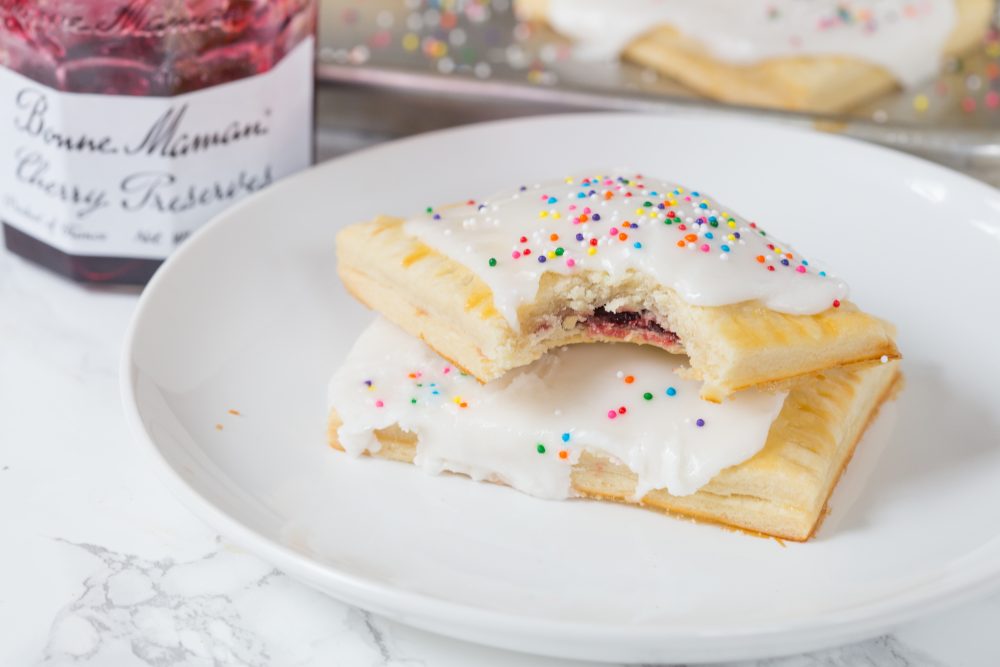
Feel like you're having a bad day? Why not give the below homemade Pop tart pies recipe a go to help you feel a little better? 🙃
EVERY DAY MAY NOT BE GOOD, BUT THERE'S SOMETHING GOOD IN EVERY DAY HOMEMADE POP TART PIES RECIPE
Ingredients:
- 1 (15 ounce) package refrigerated pie crusts
- 1/4 cup strawberry jam, divided
- 2 cups confectioners' sugar
- 2 tablespoons milk
- 1/2 teaspoon vanilla extract
- 1 tablespoon coloured decorating sugar, or as needed
Method:
- Preheat oven to 425 degrees F (220 degrees C). Line baking sheets with parchment paper.
- Unroll the pie crusts, place on a lightly floured work surface, and roll the crusts slightly with a rolling pin to square the edges. Cut each crust into 8 equal-sized rectangles. Place about 2 teaspoons of strawberry jam in the center of 8 squares, and spread the jam out to within 1/4 inch of the edge of the pastry square. Top each with another pastry square, and use a fork to crimp the squares together, sealing in the jam. Use a knife to trim the pastries, if desired. Move the filled pastries to the prepared baking sheets.
- Bake in the preheated oven until the edges are lightly golden brown, about 7 minutes. Allow to cool on the baking sheets. Meanwhile, stir together the confectioners' sugar, milk, and vanilla extract in a bowl to make a spreadable frosting. Spread the cooled tarts with frosting and sprinkle with colored sugar.
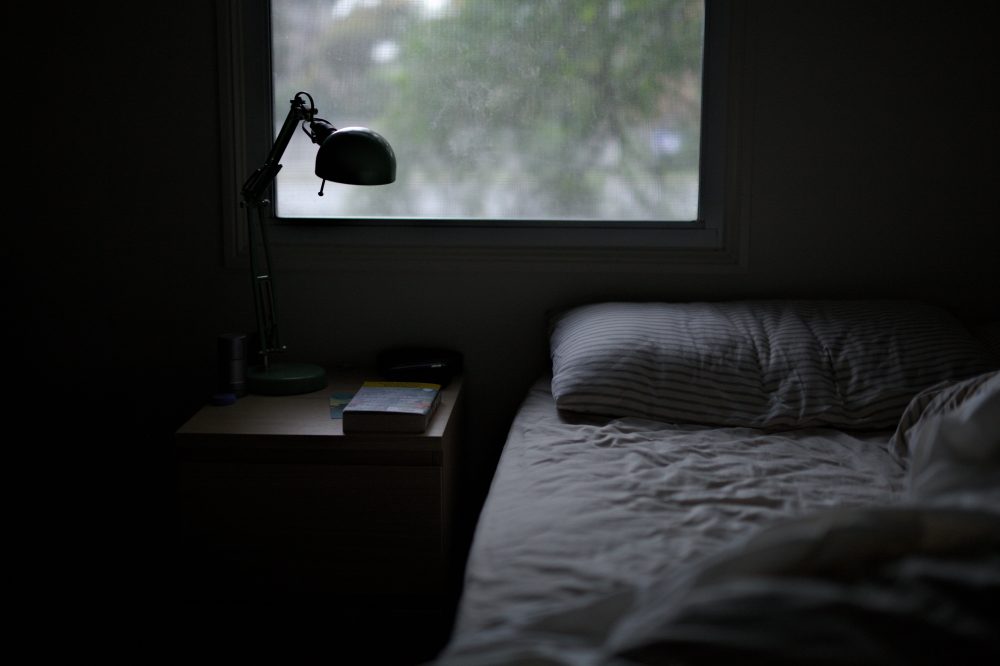
Some young Japanese men are refusing to leave their bedrooms and are choosing to withdraw themselves from society. The reasons aren't always very clear, but in Japan, it's known as hikikomori.
Hikikomori refers to the act of isolation, and to the young men themselves. The word translates as 'pulling inward' or 'being confined'. Often, a hikikomori's family are both ashamed and at a loss as to how to help their child. Some men have not left their own houses in over a decade!
Isolation and loneliness can have a major impact on our mental health. A scheme called 'Rent-a-sister' in Japan is being used to help these hikkomori men to begin to recovery from their reclusiveness. You can watch more about this here.
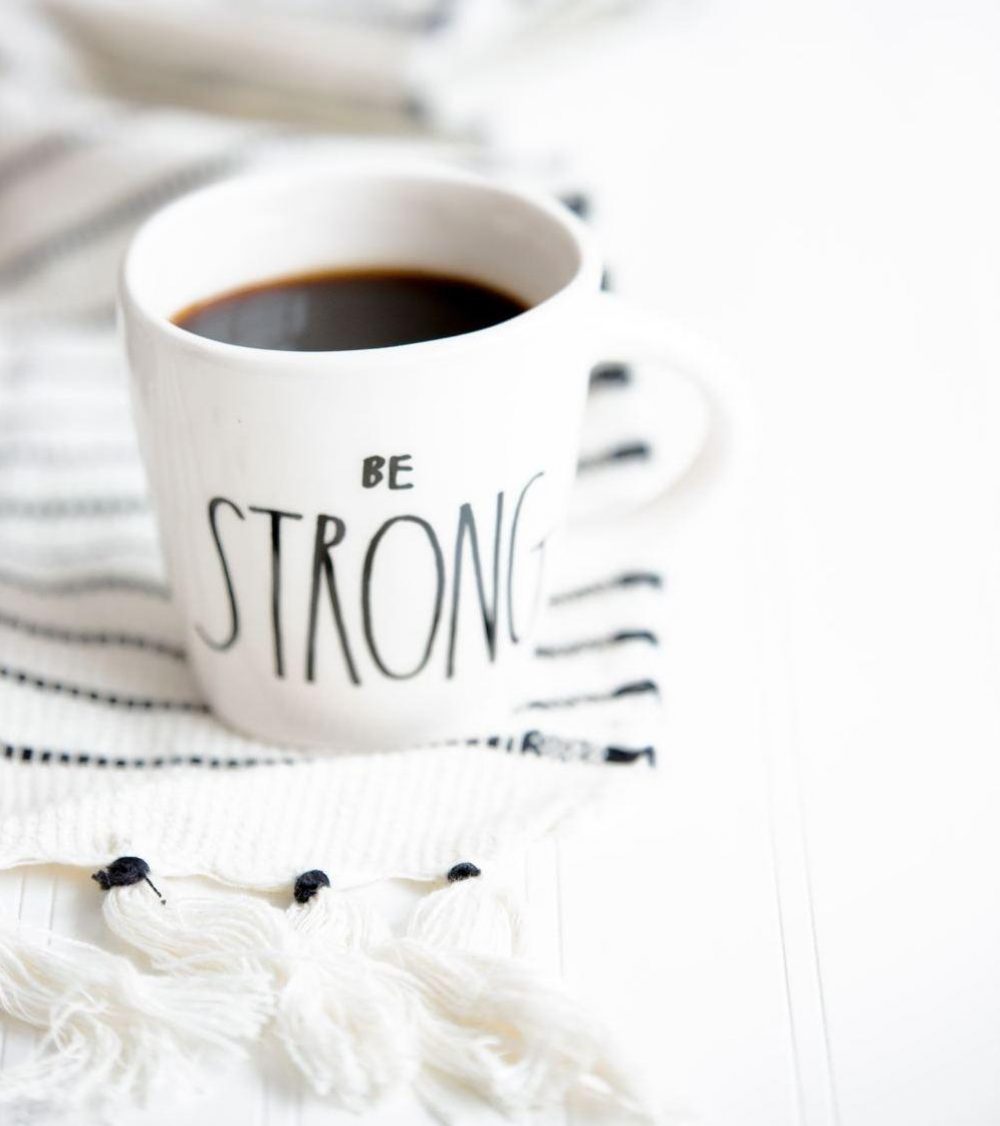
So, this isn’t Derren Brown stuff...
Honest!
Mind training is gently and kindly challenging your friend when they say negative things about themselves (that sounds way easier, eh!?).
Negative thoughts are part of our human mind set. Most of us have to fight the inner voice which tells us we are rubbish, ugly, fat, stupid or unkind at some points in our lives… The key to managing this negative inner voice is to train your brain to tell it to ‘get stuffed’!
If your friend says negative things about themselves often, here are some tips to help them ‘train their brain’:
- Listen to them – don’t say ‘that’s rubbish’
- Don’t get angry when they say negative things about themselves
- Do – ask them to say what the opposite is of the negative thought
- Do – ask them write the positive side of each negative thought they have
- Do – ask them to put the negative thoughts they have written in the bin
- Do – ask them to put the positive thoughts up in their room, or list them on their phone so they can see them and read them when they are saying negative things
- Do – do things together than are achievable and fun. If they hate ice – skating and fall over all the time, don’t go ice skating!
- Do – be positive in the words you use with your friend, even with ‘banter’! It has a huge effect.
Now, try it on yourself too – positive people have a better outlook on life!


